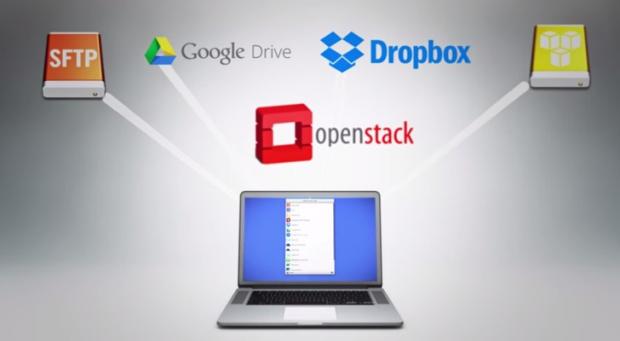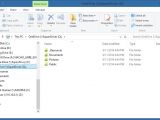Cloud technology has certainly brought forth the easiest and quickest solutions to common PC issues (such as data backup), thanks to numerous online hosting services that permit us to access information from any supported device (e.g. computer, smartphone, table) via a basic account.
Each of these products has its own ups and downs when it comes to platform compatibility, storage size, maximum file size and, of course, price. Luckily, users are not restricted to handling only one client, so they naturally try as many as their time and interest allow it to find the best match.
ExpandDrive proposes a convenient and simple solution in this regard, letting users log into multiple accounts at the same time and map local drives to the cloud storage. In other words, they will be able to view, copy, move, delete, and edit their online files just like when working with any other partition in Windows.
License type, installation, interface
The trial version does not have any limitations. However, it can be tested for a maximum of 7 days. Once this period is over, users may consider purchasing the full package for $49.95 / €38.66. It can be quickly and easily set up.
At startup, the tool creates an icon in the system tray area and runs at every Windows boot by default (this option can be disabled). To begin working with the application, users are asked to sign up for a free ExpanDrive account by entering a user name and email address (does not require confirmation).
Create shortcuts to deploy multiple cloud accounts
A list with all supported file hosting services is shown afterwards, which enables users to log into any number of them and facilitate quick access to the containing files and folders in Windows Explorer by mounting a virtual drive. These are SSH (SFTP), FTP, Amazon S3, OpenStack Swift Storage, Dropbox, Google Drive, Google Cloud Storage, Box.com, Microsoft OneDrive, ownCloud, Copy.com, Rackspace Cloud Files, HP Helion, DreamObjects, hubiC, and WebDAV. The steps are extremely easy to follow. The account credentials are needed for logging into each service, after which ExpanDrive requests permission to access private information.
All active accounts are displayed in a list. However, ExpanDrive does not automatically mount them as drives; this can be done by double-clicking each entry. It is possible to pick a nickname and letter for the volume label, as well as set the drive to automatically reconnect at login. Any location can be opened in Explorer without leaving the interface, ejected or removed from the list with a simple click, and the aforementioned parameters can be edited at any time.
Seamlessly view, edit, copy, and delete cloud files in mounted drives
Once the virtual drives are mounted, users can freely perform file operations between the computer and file hosting service. They should keep in mind that ExpanDrive might take a long time to synchronize all data to the files in the cloud, though, depending on their total size, as well as to copy or move files.
Log details are recorded in text files and can be investigated to find out the time and date for important events, such as the session start, files that could not be identified, drive connection, and port listened.
Apart from the fact that the application's entry can be removed from the Windows autostart sequence, users can hide its icon from the taskbar notifications area, set it to not show drives right after connecting to them, hide the interface when launched, as well as manually check for software updates instead of automatically.
The Good
SSH (SFTP), FTP, Amazon S3, OpenStack Swift Storage, Dropbox, Google Drive, Google Cloud Storage, Box.com, Microsoft OneDrive, ownCloud, Copy.com, Rackspace Cloud Files, HP Helion, DreamObjects, hubiC, and WebDAV are supported.
It has minimal impact on computer performance, using low CPU and RAM. The virtual drives are quickly mounted on the disk, and users can start working with them as soon as possible.
Log details can be examined to find out any issues.
The Bad
Considering the full price of the app, we expected richer features. Apart from that, the trial period is significantly reduced when comparing it with the regular time frame given by software developers for testing purposes (30 days).
 14 DAY TRIAL //
14 DAY TRIAL // 




